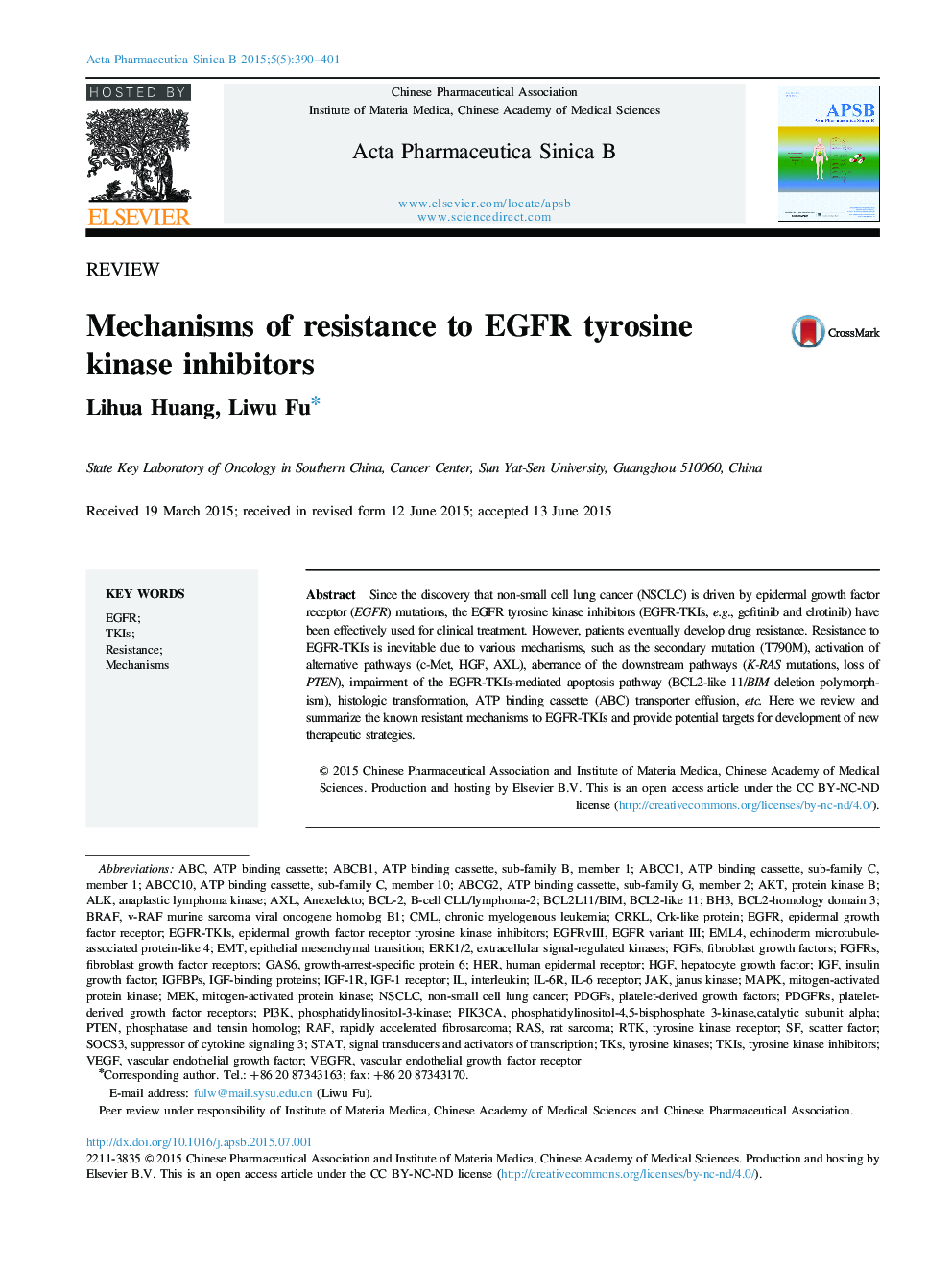| Article ID | Journal | Published Year | Pages | File Type |
|---|---|---|---|---|
| 2474618 | Acta Pharmaceutica Sinica B | 2015 | 12 Pages |
Since the discovery that non-small cell lung cancer (NSCLC) is driven by epidermal growth factor receptor (EGFR) mutations, the EGFR tyrosine kinase inhibitors (EGFR-TKIs, e.g., gefitinib and elrotinib) have been effectively used for clinical treatment. However, patients eventually develop drug resistance. Resistance to EGFR-TKIs is inevitable due to various mechanisms, such as the secondary mutation (T790M), activation of alternative pathways (c-Met, HGF, AXL), aberrance of the downstream pathways (K-RAS mutations, loss of PTEN), impairment of the EGFR-TKIs-mediated apoptosis pathway (BCL2-like 11/BIM deletion polymorphism), histologic transformation, ATP binding cassette (ABC) transporter effusion, etc. Here we review and summarize the known resistant mechanisms to EGFR-TKIs and provide potential targets for development of new therapeutic strategies.
Graphical abstractWe review and summarize the known resistant mechanisms to EGFR-TKIs and provide potential targets for development of new therapeutic strategies.Figure optionsDownload full-size imageDownload as PowerPoint slide
